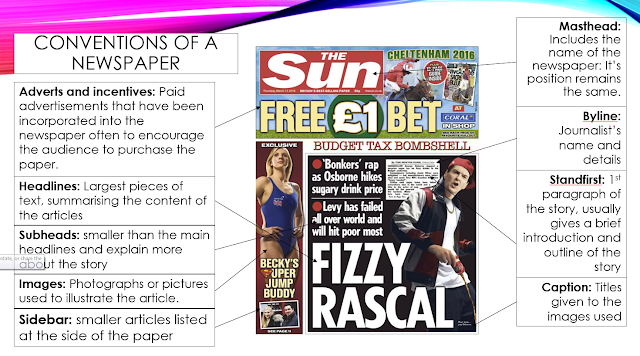The Guardian - Politics, sports, health
Curated content - There is too much happening in the world for us to keep up with. We can only realistically process a small amount of news. But who should decide?
1. Supply-led content: 'gatekeepers' are people who decide which news are important, in news this would be the editors and the journalists.
2. Demand-led, no 'gatekeepers', we decide what is important, we follow the people that interest us and ignore the rest.
Clay-Shirkey - Cognitive Surplus, focuses on describing the free time that individuals have to engage with collaborative activities within new media.
In my own words, the free time that people have on their hands to engage in collaborative activities, especially the internet
Twitter- launched in 2006, twitter is a web 2.0 social media with over 300 million active users.
What's the point of Twitter? People get to check in on famous celebrities, etc Twitter is also used by journalists, and this is because from twitter, they can easily get gossip and drama about celebrities. However, there are many fake accounts, which means fake stories.
So social media can assist in the production, marketing and exchange of news.
They're both popular because they post news that are about politics, celebrities, the Monarchy and overall, human interest. They're also quite similar, as they post nearly the same things, except the Guardian posts more sports.
Clay-Shirkey - Cognitive Surplus, focuses on describing the free time that individuals have to engage with collaborative activities within new media.
In my own words, the free time that people have on their hands to engage in collaborative activities, especially the internet
Twitter- launched in 2006, twitter is a web 2.0 social media with over 300 million active users.
What's the point of Twitter? People get to check in on famous celebrities, etc Twitter is also used by journalists, and this is because from twitter, they can easily get gossip and drama about celebrities. However, there are many fake accounts, which means fake stories.
- Vox pops - The average person's opinion
- Marketing and distribution platform
- Source of tips
So social media can assist in the production, marketing and exchange of news.
They're both popular because they post news that are about politics, celebrities, the Monarchy and overall, human interest. They're also quite similar, as they post nearly the same things, except the Guardian posts more sports.










 he is a media mogul
he is a media mogul

